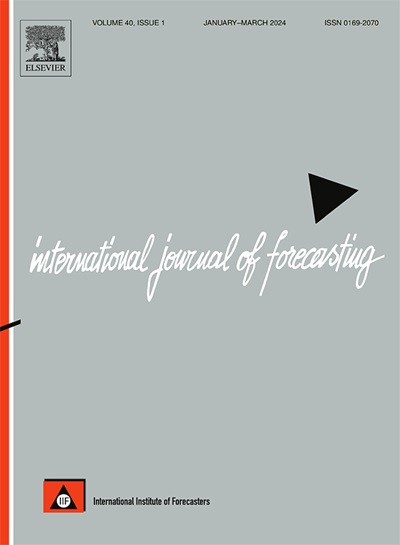培训如何提高个人预测?地缘政治预测中补偿性和非补偿性偏差的建模差异
IF 7.1
2区 经济学
Q1 ECONOMICS
引用次数: 0
摘要
人类预报员的偏见导致了糟糕的校准。我们评估了正规训练如何影响二元结果的概率预测中的两种类型的偏差。当一个概率范围内的低估(例如,小于50%)伴随着相反范围内的高估时,就会出现补偿性偏差。当错误估计的方向在整个概率范围内一致时,就会发生非补偿性偏差。我们提出了一种新的方法来建模概率预测,以确定补偿和非补偿偏差的程度和方向。使用来自Good Judgment Project的数据,我们对训练(随机分配)对来自851名预报员的39,481个初始预测的校准的影响进行了建模。所有预测者的预测都显示出显著的补偿性和非补偿性偏差。在这两年中,培训显著减少了补偿性偏差。它只在比赛的第二年减少了非补偿性偏见。本文章由计算机程序翻译,如有差异,请以英文原文为准。
How does training improve individual forecasts? Modeling differences in compensatory and non-compensatory biases in geopolitical forecasts
Biases in human forecasters lead to poor calibration. We assess how formal training affects two types of bias in probabilistic forecasts of binary outcomes. Compensatory bias occurs when underestimation in one range of probabilities (e.g., less than 50%) is accompanied by overestimation in the opposite range. Non-compensatory bias occurs when the direction of misestimation is consistent throughout the entire range of probabilities. We present a new approach to modeling probabilistic forecasts to determine the extent and direction of compensatory and non-compensatory biases. Using data from the Good Judgment Project, we model the effects of training (randomly assigned) on the calibration of 39,481 initial forecasts from 851 forecasters across two years of the contest. The forecasts exhibit significant indications of both compensatory and non-compensatory biases across all forecasters. Training significantly reduces the compensatory bias in both years. It reduces the non-compensatory bias only in the second year of the contest.
求助全文
通过发布文献求助,成功后即可免费获取论文全文。
去求助
来源期刊

International Journal of Forecasting
Multiple-
CiteScore
17.10
自引率
11.40%
发文量
189
审稿时长
77 days
期刊介绍:
The International Journal of Forecasting is a leading journal in its field that publishes high quality refereed papers. It aims to bridge the gap between theory and practice, making forecasting useful and relevant for decision and policy makers. The journal places strong emphasis on empirical studies, evaluation activities, implementation research, and improving the practice of forecasting. It welcomes various points of view and encourages debate to find solutions to field-related problems. The journal is the official publication of the International Institute of Forecasters (IIF) and is indexed in Sociological Abstracts, Journal of Economic Literature, Statistical Theory and Method Abstracts, INSPEC, Current Contents, UMI Data Courier, RePEc, Academic Journal Guide, CIS, IAOR, and Social Sciences Citation Index.
 求助内容:
求助内容: 应助结果提醒方式:
应助结果提醒方式:


